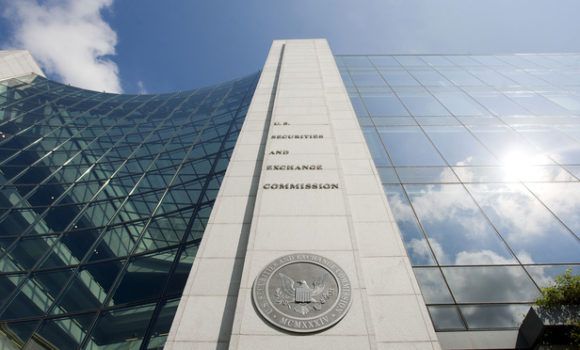The U.S. Supreme Court will decide whether the Securities and Exchange Commission’s in-house judges were appointed in violation of the Constitution, agreeing to hear a case that could upend administrative hearing systems across the federal government.
The move came at the request of the Trump administration, which switched sides in November and told the justices it would no longer defend the SEC’s system.
The dispute could affect more than 100 cases currently at the SEC, along with a dozen that are on appeal in the federal courts. It also could have ramifications for other government agencies, including the Federal Deposit Insurance Corp. and the Consumer Financial Protection Bureau, which have similar systems for appointing their administrative law judges.
The justices will hear an appeal from Raymond Lucia, who was fined $300,000 and barred from working as an investment adviser after an SEC judge found he misled prospective clients. Lucia contends the SEC judges are “officers,” and not mere employees, meaning the Constitution requires them to be appointed by the president, a department head or a court.
Lucia’s lawyer, Mark Perry, says the constitutional requirement ensures that important formalities are observed — including a commission vote and the administration of an oath of office — before people wield federal authority.
Those steps “are required and observed precisely so that the public, the agency and the officer himself or herself knows and understands who is an officer and what office that person holds,” Perry said in an interview.
The Trump administration told the court that the judge who handled Lucia’s case “did not conform” to the Constitution’s requirements. The SEC’s judges are selected by the chief judge and approved by the commission’s personnel office, U.S. Solicitor General Noel Francisco said in court papers.
Federal appeals courts are divided on the issue. The Washington-based court in Lucia’s case said the SEC’s judges don’t qualify as officers because their decisions don’t become final until the commission itself takes action, either by reviewing the ruling or by explicitly declining to intervene.
“The initial decision becomes final when, and only when, the commission issues the finality order, and not before then,” Judge Judith Rogers wrote for the unanimous three-judge panel. “Thus, the commission must affirmatively act — by issuing the order — in every case.”
The Trump administration’s shift in position means the Supreme Court probably will appoint an outside lawyer to defend the lower court ruling.
The SEC’s top lawyers didn’t sign the Trump administration brief, suggesting they don’t support the new position.
The day after the brief was filed, the SEC issued an order that ratified the appointment of its five judges and told them to review each of their pending cases. Although the commission said the moves would resolve any problems under the appointments clause, that’s likely to be disputed. Lucia’s lawyers called the order “substantively defective.”
Critics say the SEC fares much better before its own judges than it does in federal court. In a court filing supporting Lucia, the U.S. Chamber of Commerce said the commission has a “home court advantage in administrative proceedings.”
The case is Lucia v. SEC, 17-130.
Topics USA Legislation Tech
Was this article valuable?
Here are more articles you may enjoy.



 Lemonade Books Q4 Net Loss of $21.7M as Customer Count Grows
Lemonade Books Q4 Net Loss of $21.7M as Customer Count Grows  AI Claim Assistant Now Taking Auto Damage Claims Calls at Travelers
AI Claim Assistant Now Taking Auto Damage Claims Calls at Travelers  Insurance Broker Stocks Sink as AI App Sparks Disruption Fears
Insurance Broker Stocks Sink as AI App Sparks Disruption Fears  Florida Engineers: Winds Under 110 mph Simply Do Not Damage Concrete Tiles
Florida Engineers: Winds Under 110 mph Simply Do Not Damage Concrete Tiles 

